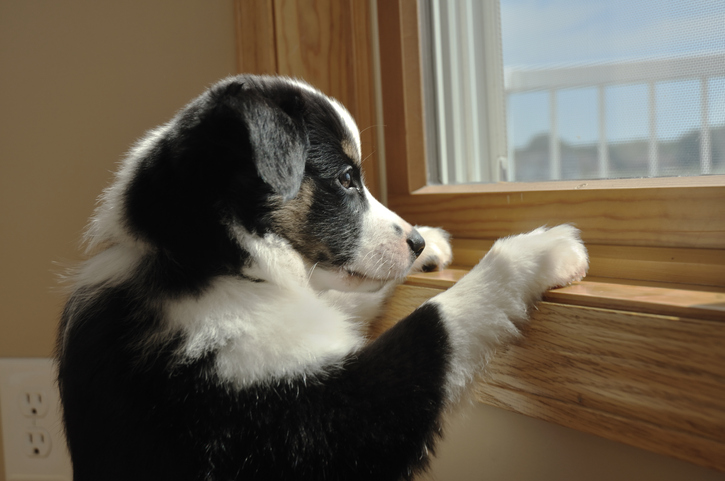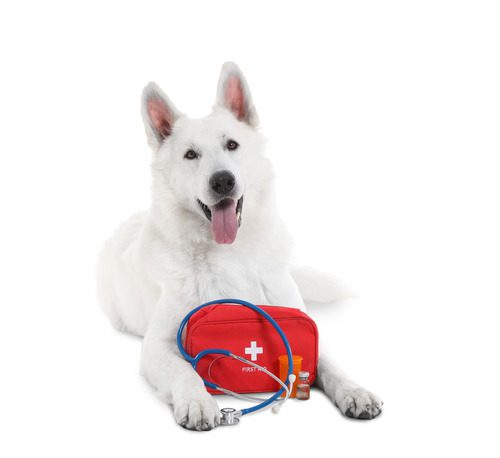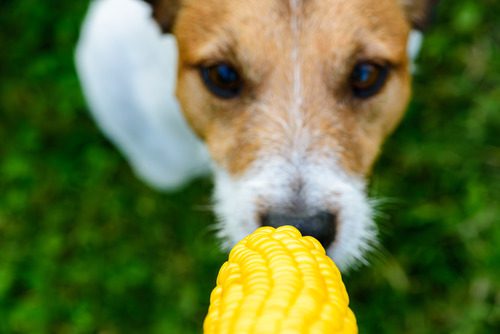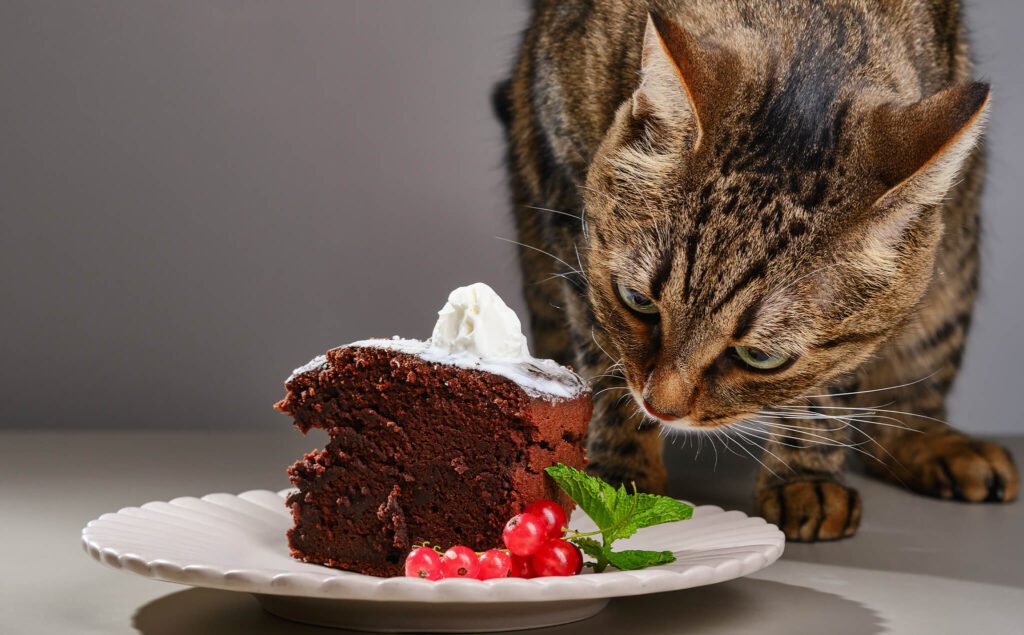Is Your Dog Scared of Fireworks? Here’s How to Help
While fireworks are a sign of celebration and happiness for people, they can be a source of deep distress for dogs. Your furry loved one might not be as excited as you are about those colorful explosions in the night sky. That’s why it’s important to know how to help your dog during these kinds of displays. Keep reading to learn why dogs are afraid of fireworks and how to help them manage their stress and anxiety.

Why Are Dogs Scared of Fireworks?
On average, dogs have twice the hearing range of humans. In addition to this wider range, they also have ears that are more sensitive. This means that even faint sounds can put your furry ones on alert–as every dog owner already knows.
Due to their exceptional hearing, the thunderous booms that fireworks produce can easily overwhelm them. What’s more, dogs can also feel the vibrations of these explosions through their sensitive paws, and can even pick up on the scent left behind by fireworks if they are close enough. This can make for a traumatizing experience that leads to a lifelong fear if not handled correctly.
Common Signs That Your Dog Is Scared of Fireworks
While every dog expresses anxiety differently, there are some common signs that many dogs display when they are frightened by fireworks. Below are behaviors to look for during explosive shows.
Seeking a Place to Hide
If you notice your furry friend crawling under a blanket or shoving themselves under a chair during a show, it can be a sign that they are afraid of the strange, new noises.
Trembling Body
Is your dog suddenly shaking or trembling uncontrollably? Consider this your cue to console your pup. Even slight trembling could mean the fireworks are too startling for them.
Loud Barking, Growling, or Howling
If your fur baby becomes excessively vocal while fireworks are active, it’s probably not out of excitement. Barking, growling, or howling during fireworks often means your dog is in distress.
Destructive Outbursts
Some dogs express their anxiety and fear through destructive behaviors. This can include chewing on household items, scratching doors and defecating indoors.
Running Away or Attempting to Escape
There’s a reason why dog experts urge pet owners to keep their four-legged friends indoors during fireworks. Their loud explosions and unnerving vibrations can send even well-trained dogs running for refuge. An open door can quickly become an exit strategy for a frightened pup.
If you notice some or all of these behaviors when the festivities begin, it’s time to tend to your dog. Keep reading to learn how to help alleviate their stress and anxiety.
How to Help a Dog Scared of Fireworks
Ensuring your pet feels comfortable during a display need to be a top priority, regardless of whether they are indoors or at the park with you. Discover the best practices to console your pup below.
Make Preparations
Don’t wait to see how your dog reacts to fireworks, even if they’ve been calm during previous shows. Instead, prepare for the worst while hoping for the best.
This can look like providing them with a safe space far away from the noise, keeping them company indoors, or investing in a diffuser designed to alleviate stress in dogs. Every dog will have different needs, which is why it is important to be present and attentive. This will help you choose the most effective methods in the future.
Consult with a Dog Trainer
A certified and experienced dog trainer can help your pet receive desensitization training. This kind of training can acclimate them to the common sensations associated with fireworks. It may include gradual exposure, positive reinforcement and scent association.
If you are an avid fan of fireworks and know your pup will be exposed to these exciting explosions, working with a trainer can help them have a more positive experience. Keep in mind, even a well-trained dog will still need to be supervised and monitored for signs of distress during shows.
Food Before Fireworks
A hungry dog is more likely to have a negative reaction to loud noises than a dog that’s fed and full. Make sure to feed your pup before any displays begin, even if it doesn’t align with their usual feeding schedule. This will help them feel more relaxed and ready to deal with excessive noise. Additionally, feeding your furry friend beforehand can stabilize their blood sugar levels–an important consideration for those with diabetic dogs.
Schedule Playtime Before the Show
Playtime with your pup can provide the physical exercise and endorphin release needed to help them deal with the stress of fireworks. For a successful playtime session, pick an activity that you know your dog loves. Time the session to end shortly before the show begins to create a positive association between their favorite activity and fireworks. Include enough time to feed them well after playtime and keep treats on hand to reward them for good behavior.
Ask Your Vet About Medication
Some dogs require more assistance to keep calm during shows. If you’ve already tried natural solutions and nothing works, it might be time to ask your vet about a prescription for anxiety relief. Your veterinarian can help you choose the best medication depending on your pup’s needs.
They might suggest natural remedies that you can find at your local pet supply store–or something stronger for more anxious pets. By working together, you can come up with the ultimate solution to keep your furry friend calm and relaxed.
Follow the Tips Above to Help Your Dog Who Is Scared of Fireworks
Being a responsible pet owner means being mindful of your pet’s response to fireworks. Observing your dog’s behavior during displays can aid you in finding best solutions to reduce their stress and anxiety.
While they might be just fireworks to you, they can feel overwhelming to a dog who doesn’t understand the context of loud and invasive explosions. That’s why it’s important to practice empathy and compassion as you seek out optimal solutions for your furry loved one. The best kind of support you can provide is to be present, prepared and ready to console your pet as needed. If your pet is in an emergency situation and they need to speak to a veterinarian, contact EVCC by calling one of our locations. Our team is always here to help!
Recent Posts
Lyme Disease in Dogs: A Complete Guide for Pet Owners
Lyme Disease in Dogs: A Complete Guide for Pet Owners Discovering that your dog may be at…
Parvo in Dogs: What it is, Symptoms and How to Protect Your Pet
Parvo in Dogs: What it is, Symptoms and How to Protect Your Pet Parvovirus in dogs, commonly…
6 Common Pet Emergencies in Westville, IN
6 Common Pet Emergencies in Westville, IN When your pet faces an emergency, knowing what to expect…
My Dog Ate a Corn Cob, What Should I Do?
My Dog Ate a Corn Cob, What Should I Do? Discovering your dog has eaten a corn…
What To Know about Chocolate Poisoning in Cats and How to Protect Them
What To Know about Chocolate Poisoning in Cats and How to Protect Them Chocolate is a treat…






